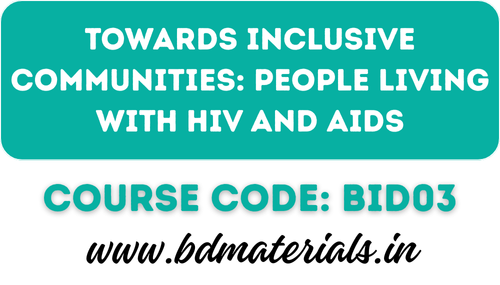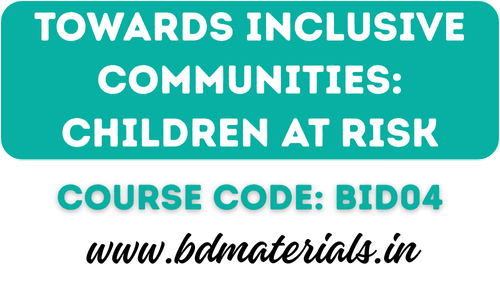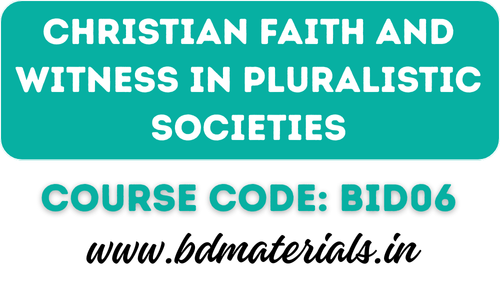Course Code: BID01
Science and Religion
BD III, Semester I & II, 4 Credit Hours, Senate Paper
Course Objectives:
- To understand the Biblical Doctrine of Creation and explore its historical and current implications for Science, Scientists, and believers.
- To equip students with the basic knowledge in the field of Science and Religion for proper pastoral care and outreach.
- To expose students to emerging areas of interest in the Science and Faith interface.
- To enable the students to have a critical theological and ethical engagement with modern science and technology at various levels as part of their Christian vocation in church and society.
- To equip the students to grapple with the ethical questions that modern science and technology poses, and to develop alternative theological and paradoxical perspectives, drawing from contemporary theoretical formulations and social movements.
- To help the church to address theologically the ministerial challenges that modern science and technology unleashes, and to motivate the church to witness in the public sphere engaging with public policy issues related to science and technology.
Course Requirements:
- Final Examination: 100%.
Course Outline:
UNIT 1: Introduction
- Nature of Science, Technology, and Religion.
- Analysis of Enlightenment Induced Scepticism from within Theological Scholarship.
- The Problem with Biblical Literalism: Varieties of Creationism, Old Earth Creationism, Young Earth Creationism.
- Intelligent Design.
- Examination of the Atheists’ use of Science against faith: Scientism as a worldview.
Readings
- Alexander, Denis. Rebuilding the Matrix, Lion Book, 2001.
- Dawkins, Richard. The Blind Watchmaker: Why the Evidence of Evolution Reveals a Universe without Design, 2006.
- Dennett, Daniel. Breaking the Spell: Religion as a Natural Phenomenon, McGraw Hill, 2007.
- Derry, Gregory. What Science is and How it Works, Princeton, 1999.
- Dusek, Vai. Philosophy of Technology, Blackwell, 2006.
- Haack, Susan. The Six Signs of Scientism, Unpublished Notes.
- Hariri, Noah Yuval, & Seeker, Harvill. Homo Deus, 2017.
- McGrath, Aister. Science and Religion: An Introduction, Eerdmans, 2003.
- Mills, David. Atheist Universe: The Thinking Person’s Answer to Christian Fundamentalism (Ulysses Press, 2006).
- Nelson, Paul. Three Views on Creation or Evolution (ed), IVP, 1999.
- Numbers, Ronald. Creationists – From Scientific Creationism to Intelligent Design, Harvard, 2006.
- Padgett, Alan, Science and the Study of God, Eerdmans, 2003.
- Pedersen, Olsen. And Blackwell, Hencricks, A Companion to the Philosophy of Technology (ed), 2009.
- Ratzsch, Del. Science and its Limits: The Natural Sciences in Christian Perspective, IVP Academic, 2000.
- Särukkai, Sundar. What is Science, NBT, 2011.
- Sorell, Tom. Scientism, Routledge, 1991.
UNIT 2: Historical Encounters of Science and Christian Faith: Myth and Facts
- Church and advances in medical sciences.
- Flat earth cosmogony.
- Heliocentric Model, and Copernicus, Galileo, and other martyrs of Science.
- Charles Darwin’s Theory of Evolution.
- The Christians Roots of Western Science.
- Scientific Method and Astrology.
- Religion and the Rise of Technology.
Readings
- Brooke , John Hedley. Science and Religion: Some Historical Perspectives, CUP, 1991.
- Grayling, AC. The Age of Genius; The Seventeenth Century and the Birth of Modern Mind, Bloomsbury, 2017.
- Hannam, James. God’s Philosophers, Icon Books, 2009.
- Lindberg, David, and Ronald Numbers. God & Nature: Historical Essays on the Encounter Between Science and Christianity, Ed, UCLA Press, 1992.
- When Science and Christianity Meet, Ed, Univ Chicago Press, 2003.
- Mangalwadi, Vishal. The Book That Made Your World, Thomas Nelson Publishers, 2012.
- Nobel, David E. The Religion of Technology: The Divinity of Man and the Spirit of Invention, Penguin, 1999.
- Numbers, Ronald. Galileo Goes to Jail and Other Myths about Science and Religion Ed, HUP, 2009.
- White Jr, Lynn. Medieval Religion and Technology, UCLA Press, 1978.
UNIT 3: Paradigms in Science and Paradigm Shifts
- Philosophy and Sociology of Science: An Introduction.
- Newtonian Mechanics.
- Einstein’s Theory of Relativity.
- Quantum Physics.
Readings
- Baggot, Jim. The Quantum Story, OUP, 2016.
- Bricmont, Jean, and Alan, Sokal. Fashionable Nonsense: Postmodern Intellectuals’ Abuse of Science, Picador, 1999.
- Intellectual Impostures, Profile Books, 2003.
- Chalmers, A.E. What is this thing Called Science by Univ Queensland Press, 1999.
- Chandrankunnel, Mathew. Cosmosophy: Physics & Philosophy of the Cosmos, Dharmaram Publications, 2014.
- Holder, Rodney. Nothing but Atoms and Molecules, Faraday Institute, 2008.
- Newton, Roger. The Truth of Science, Viva Books, 2010.
- Newton, Roger G. From Clockwork to Crapshoot – A History of Physics, Harvard, 2009.
- Ralte, Rodinmawia. The Interface of Science & Religion: An Introductory Study, CWI, 2017.
- Smith, Peter Godfrey. Theory and Reality, Chicago, 2003.
- Vinck, Dominique. The Sociology of Scientific Work, Edward Elgar Publishing, 2010.
UNIT 4: Scientific Theories of the Origin of the Universe and Life: Description & its Reception
- Big Bang Cosmology, Steady State Theory, Many-World Theories, Anthropic Cosmological Principle.
- Theory of Evolution and the Neo-Darwinian Synthesis: Historical and Sociological Reasons.
- Christians contributions to Modern Science: Michael Faraday, Don Knuth, Donald Mackay, Francis Collins, Rosalind Picard, William D Phillips, John Houghton, Francis Bacon, and John Ray.
- Indian Christian contributions to Science and Religion.
Readings
- Critical Issues: In the Philosophy of Science & Religion ISPCK, Delhi & IISR, Pune 2006.
- Alexander, Denis. Rebuilding the Matrix, Lion, 2001.
- Berry, R. J. True Scientists, True Faith, Monarch, 2015.
- Gosling, David. Science and the Indian Tradition, Routledge, 2008.
- Hawking, Stephen. A Brief History of Time, Penguin, 1995.
- The Theory of Everything, Penguin, 2007.
- Henry, Sarojini. The Encounter of Faith and Science in Inter-faith Dialogue, ISPCK, 2005.
- Kozhamthadam, Job. Contemporary Science and Religion in Dialogue: Challenges and Opportunities (Ed.), ASSR Pune, 2002.
- Kragh, Helge. Matter and Spirit, ICP , 2004.
- Kragh, Helge. Cosmology and Controversy, Princeton, 1999.
- Larson, Edward. Evolution: The Remarkable History of a Scientific Theory, 2004.
- Larson, Edward. The Creation-Evolution Debate: Historical Perspectives, Univ of Georgia Press, 2007.
- Miller, Keith. Perspectives on an Evolving Creation (ed), Eerdman, 2003.
- Mukherjee, Siddharth. The Gene: An Intimate History, Penguin, 2016.
- Numbers, Ronald. The Creationists: From Scientific Creationism to Intelligent Design, HUP, 2006.
- Pamplay, Augustine. East-West Interface of Reality (Ed) ASSR, Pune & ISR, Aluva, 2003.
- Ralte, Rodinmawia. The Interface of Science & Religion: An Introductory Study, CWI, 2017.
- Rastogi, Veer Bala. Organic Evolution (Evolutionary Biology), Meditech, 2017.
- Weinberg, Steven. The First Three Minutes, Basic Books, 1993.
- Wilcox, David. God and Evolution.
UNIT 5: The Biblical Doctrine of Creation
- Biblical Doctrine of Creation and Creation Ex Nihilo.
- Biblical Doctrine of Creation, Big Bang Cosmology, and Theory of Evolution.
- Genesis as Ancient Cosmogony.
- Evolution and the Problem of Adam.
- God of the Gaps and the Problem of Reductionism.
- Models of Science and Religion relation: Ian Barbour (four models), Ted Peters, and Michael Stenmark.
Readings
- Alexander, Denis. Creation or Evolution: Do We Have to Choose, Monarch Books, 2008.
- Atkinson, David. The Message of Genesis 1-11, TVP, 1990.
- Brown, William P. The Seven Pillars of Creation, OUP, 2010.
- Holder, Rodney. Nothing But Atoms and Molecules, 2008.
- Lucas, Ernest. Can We Believe Genesis Today?, IVP, 2005.
- McLeish, Tom. Faith & Wisdom in Science, OUP, 2014.
- Ramachandra, Vinoth. Gods That Fail, Wipf & Stock, 2016.
- Walton, John. The Lost World of Genesis One: Ancient Cosmology and the Origins Debate, IVP, 2009.
- Walton, John. The Lost World of Adam and Eve: Genesis 2-3 and the Human Origins Debate, IVP, 2015.
- Wilcox, David. God and Evolution: A Faith Based Understanding, Judson Press, 2004.
UNIT 6: Science and Miracles
- Towards understanding the meaning of miracles.
- Examination of the case against the miracles in the Bible.
Readings
- Alexander, Denis. Rebuilding the Matrix, Lion Publishing, 2001.
- Blomberg, Craig. Can We Still Believe the Bible?: An Evangelical Engagement with Contemporary Questions, Brazos Press, 2014.
- Humphreys, Colin. The Miracles of Exodus: A Scientist’s Discovery of the Extraordinary Natural Causes of the Biblical Stories.
- Keener, Craig. Miracles: The Credibility of the New Testament Accounts (2 Vols), Baker Academic, 2011.
- Poole, Michael. Miracles: Science, the Bible & Experience, Scripture Union, 1992.
Friendly Note
Bachelor of Divinity Materials is your one-stop resource for comprehensive Biblical studies, designed to support students pursuing a Bachelor of Divinity (B.D.) and other theological courses. Our website is a dedicated platform that provides access to the full syllabus of the Bachelor of Divinity course along with detailed answers, ensuring a thorough understanding of every subject and topic covered in your curriculum.
Here, you will find a vast collection of assignments, study guides, articles, and research papers meticulously curated to assist you in excelling academically. The platform also features a rich selection of theological books, journals, and resources spanning diverse subjects such as Old Testament, New Testament, Systematic Theology, Church History, Biblical Languages, and Pastoral Studies.
To make your learning experience convenient and accessible, we offer downloadable PDFs of study materials, including books and journals, allowing you to learn anytime, anywhere. Whether you are preparing for exams, writing assignments, or conducting in-depth research, these resources are tailored to meet the needs of both students and scholars in biblical and theological studies.
With a commitment to empowering theological learners, our mission is to provide high-quality, authentic, and practical study materials. Explore Bachelor of Divinity Materials to grow spiritually, academically, and intellectually as you deepen your understanding of God’s Word and Christian doctrine. This platform is a valuable resource for aspiring ministers, pastors, and anyone dedicated to the study of theology and biblical teachings.






